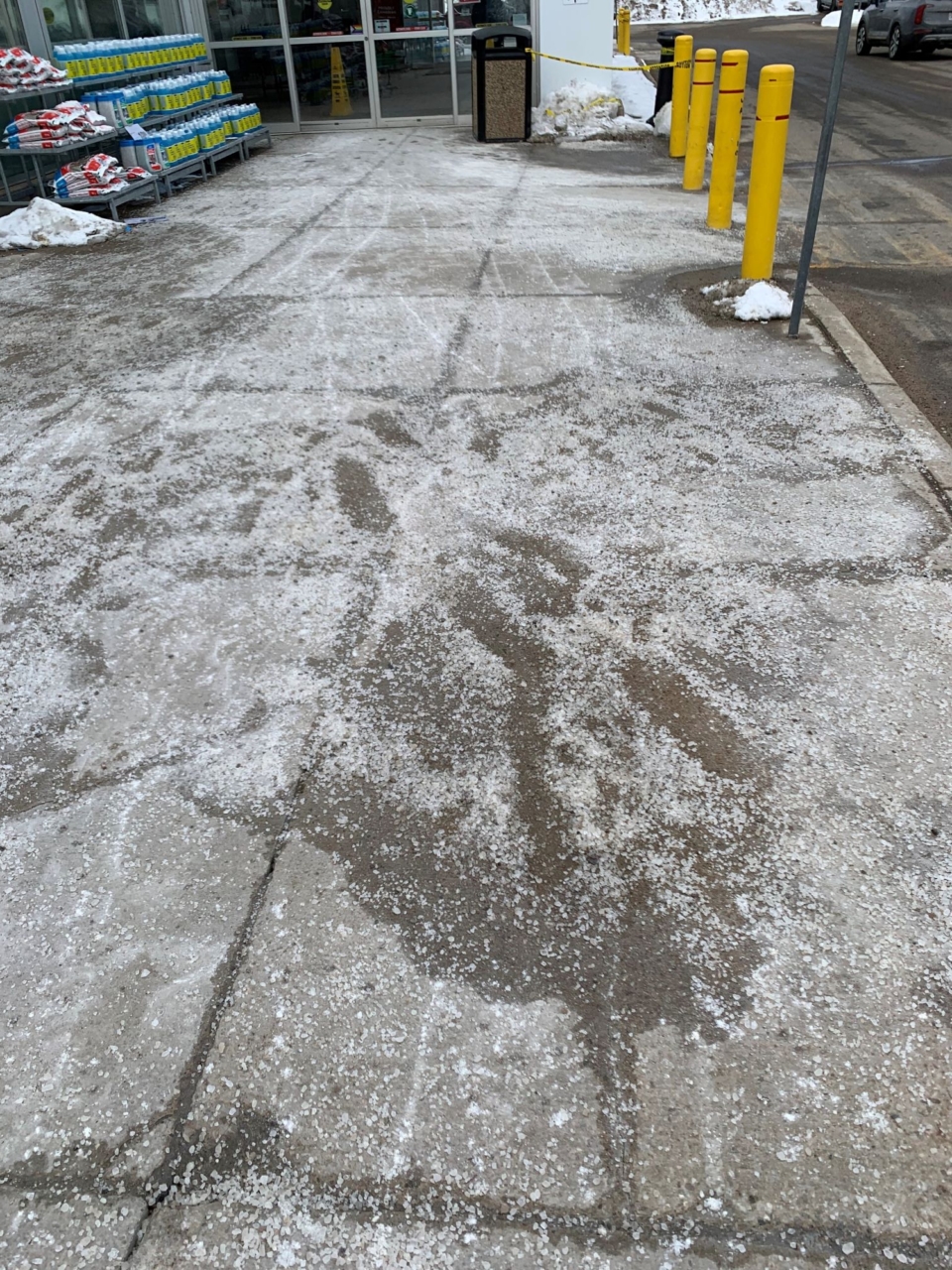Road Salt in Muskoka
Road salt is damaging our watershed
You can make a difference!

About 20 per cent of Muskoka’s road salt usage comes from individuals and small businesses. At Friends of the Muskoka Watershed (FOTMW), we want to help people reduce excessive road salt usage. For example, a 350 ml (12 ounce) cup will reduce ice accumulation on an average single-car driveway or 10 sidewalk squares.
The SALTYMuskoka Project Lead, Alesha Breckenridge, is bringing this issue to the forefront. “I’m looking forward to working with schools, lake associations, businesses and community members to help reduce road salt use and make the community more aware of the toxic impacts of road salt,” she says.
The soft water of Muskoka’s lakes and rivers is particularly vulnerable to the chloride ion that is a component of road salt. Salt enters our waterways from runoff sources that include streets, sidewalks, highways, driveways, drainage, and parking lots. Once salt is in the lakes, it can only be removed by natural water flows (known as lake flushing), which can take years. FOTMW and citizen scientists are seeing chloride measurements at levels dangerous to sensitive aquatic zooplankton. These are important components of the aquatic food chain that help keep the water clear by eating algae.
What can you do to help reduce your use of road salt? These SALTYMuskoka tips will help:
- Shovel before you spread. Salt is more effective if you don’t put it on top of snow.
- Use sand when possible.
- Check temperatures first! Road salt is ineffective when temperatures drop below -12°C.
- Store salt in a water-resistant closed container.
- Clean up spilled and excess applied salt to save for another time.
- Wear boots with good traction.
- Redirect downspouts away from walkways.
- Check that the melt path of your snow does not create icy, slipping hazards.
- Use winter tires and reduce driving speed.
- Share this information with friends and family.
It is important that we collectively work to reduce excessive road salt use and adopt a “smart about salt” attitude. “We should continue to monitor and reduce road salt use because the trend is upward,” says Dr. Neil Hutchinson, director of FOTMW. Additionally, road salt impacts more than freshwater, it damages concrete, cars and other metal structures, leather boots, pets’ feet and more.
- For more information or how to get involved with SALTYMuskoka, please contact: Alesha@fotmw.org
- Join FOTMW as a member or donor or sign up for our newsletter. Visit fotmw.org to learn more.



